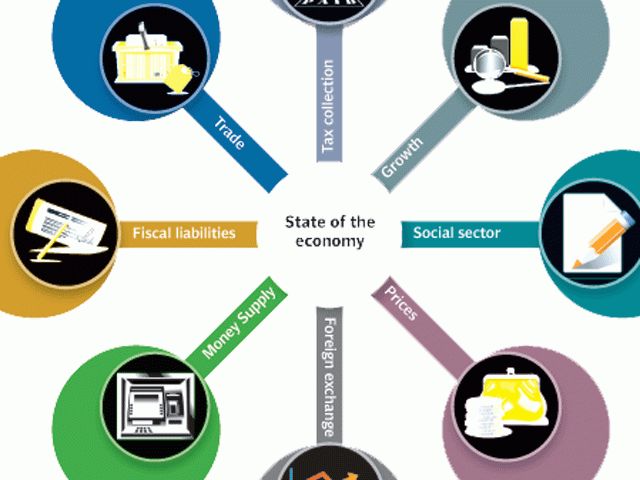Overview: A distracted govt all but ignores the economy
Exit from the IMF programme and widening deficits characterise the outgoing year.

Barring some achievements on the external front, 2011 will likely be remembered as the year the government was so distracted with its political troubles that it all but failed to pay any meaningful attention to the economy.
The problem began with the government once again being unable to fix its perennial inability to pay its bills. The fiscal deficit for fiscal year 2011 was above 6% of the total size of the economy, well above the target set by the International Monetary Fund, a failure that caused the government to – once again – prematurely end another IMF bailout programme. The primary culprit: the inability to phase out power subsidies.
“The 2008 IMF programme did bring some stability but the government could not build on it due it its failure to correct structural imbalances,” said Faisal Bari, an economist working with Open Society Foundation.
In June 2011, the government proudly proclaimed that it had achieved its (twice-downward-revised) revenue collection target of Rs1,588 billion. Within a matter of days, however, it was revealed that the government had made errors with the numbers and the real figure was close to Rs1,550 billion for the fiscal year that ended on June 30, which resulted in a massive drop in the already-low credibility of the government.
As a result of the government’s skyrocketing deficits, the bulk of the banking sector’s lending went into treasury bills, with the private sector being all but crowded out. GDP growth slowed to barely above 3% and fixed investment plummeted to a mere 13.4% of GDP, the lowest since 1974, according to the State Bank of Pakistan.
Yet even as the economy slowed to a pace that was not enough to absorb the growing workforce, the government refused to produce credible unemployment numbers, insisting that the jobless account for no more than 6% of the workforce.
The central bank was scathing in its assessment of the government’s performance. “The implementation of Reformed General Sales Tax, the broadening of tax bases, phasing of electricity subsidies, and restructuring of loss making entities either delayed or not implemented,” it said in its annual report.
Finance Secretary Waqar Masood, however, defended his team’s record. The government did take some bold steps in March by levying sales taxes on previously untaxed sectors. Several of those affected some powerful lobbies, which tried to get those decisions overturned. Their impact, however, will likely not be visible until the end of the fiscal year 2012.
On the external front, exports saw a boom during the first nine months that then began to fizzle out as economic weakness in Pakistan’s major export markets – North America and Europe – began to have an impact on orders. The peak came in May, when the country exported $2.5 billion worth of goods, but it was mostly downhill from there.
The govt made no serious attempts to correct the structural flaws that inhibit export growth. In 2011 Pakistan slipped on Global Competitiveness ranking and stood at 123 against previous rating of 101. It stood behind India, Bangladesh and Sri Lanka. While the country posted a small current account surplus in 2011, the next year is likely to see a deficit of as high as 2.5% of GDP.
One area of success was the government’s decision to grant Most Favoured Nation status to India. That the government did so over the objections of the religious right wing and the military makes it a particularly courageous decision.
Published in The Express Tribune, December 31st, 2011.


















COMMENTS
Comments are moderated and generally will be posted if they are on-topic and not abusive.
For more information, please see our Comments FAQ